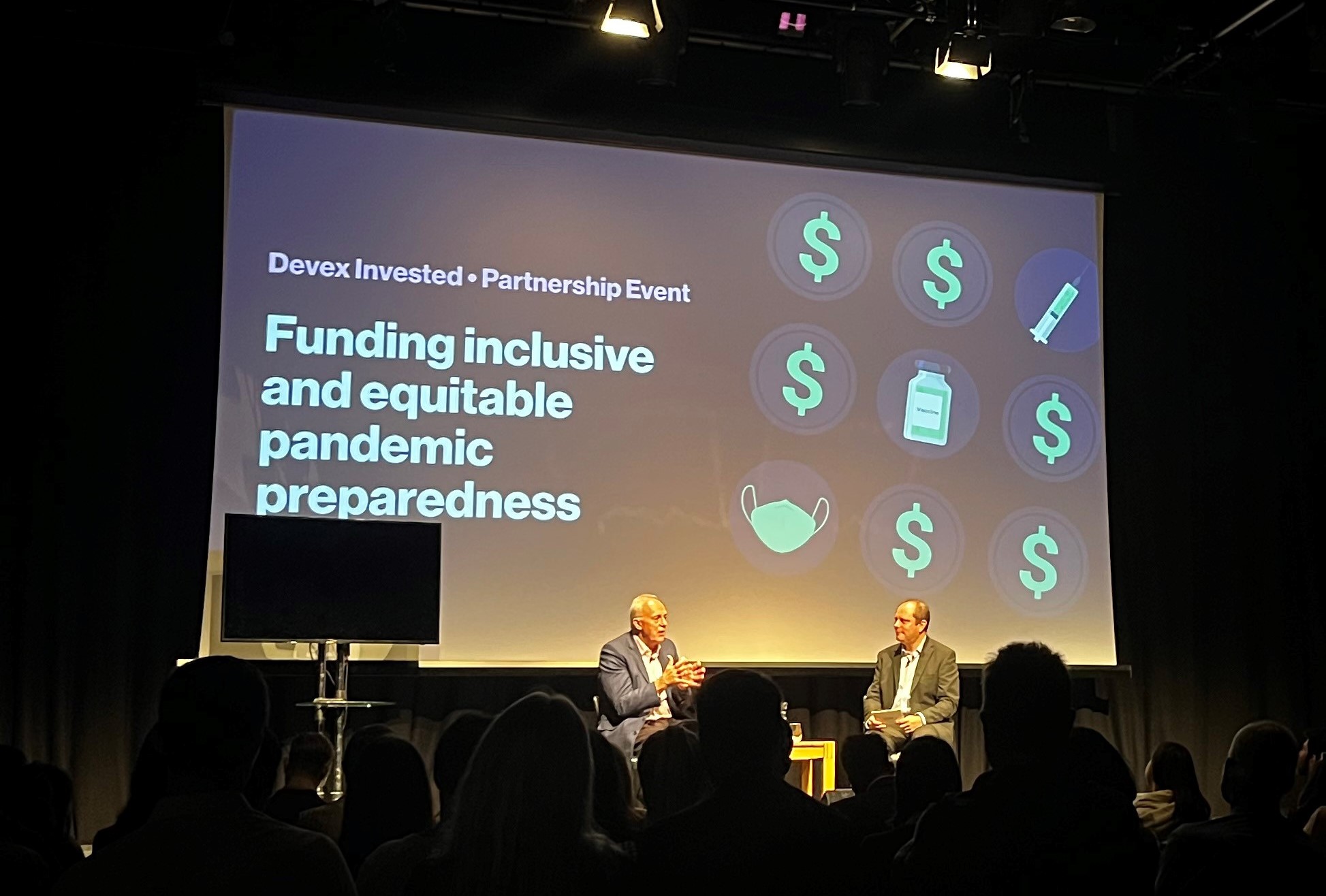The future of development finance, attending Devex Invested
I recently had the pleasure of attending Devex’s Development Finance Conference in London. Let me start by thanking Devex, the speakers and panellists and other attendees for an insightful day.
As a Strategy Consultant working in global development, I was interested to hear the latest thinking on trends impacting Development Finance organisations. This is an interesting time for Development Finance. These organisations are facing an increasingly demanding operating environment, with increased competition for funding and talent shortages. Global events have been no more forgiving: shocks including the pandemic and Ukraine invasion have revealed vulnerabilities in the ecosystem, and opportunities for change. At the same time Development Finance is required now, more than ever, to address pressing global issues. This was evidenced at CoP27, where climate financing – including loss and damages - came under intense scrutiny.
Reflecting on what I heard from speakers and my co-attendees, three messages rang loud and clear.
We need to be more ambitious and innovative
Development Finance has the potential to help expedite solutions to urgent challenges including the climate crisis, global health threats and humanitarian emergencies. To reach its full potential in meeting these challenges, the sector must become more ambitious and forward-looking. This may require entirely new funding mechanisms – and in turn, greater risk-appetite and bold thinking. This is easier said than done, against the context of politicised situations, bureaucracy and – in some cases – trust deficits. Overcoming these obstacles, and avoiding incrementalism will enable growth and innovation.
Transparency can unlock future growth
Commentators reiterated the need for transparency and harmonisation across Development Finance Institutions. At the moment it is difficult to tell, conclusively, exactly what Development Finance is funding. Donors – and particularly private sector capital – need greater levels of transparency on financials, operations and governance to build requisite trust in Development Finance. Organisations like Publish What You Fund are doing great work to encourage and enable this transparency, and we hope to see this drive towards transparency accelerate. Once trust and transparency are built, Development Finance organisations will have wider opportunities for fundraising and the mandate to pursue riskier, more innovative funding mechanisms.
We must aim for more equitable outcomes
The global pandemic revealed huge inequities in financing. The funding mechanisms governing vaccine access are seen by many as neo-colonial, and a microcosm of the entrenched power dynamics which subjugate low and middle income countries. Both local and northern advocacy groups play an important role in global development, and must continue to work together to address our global challenges. Yet, there remains considerable work to do in shifting control to empower local actors. This will take time, but is essential in ensuring equity and justice.
Collaboration will be central to success
Multilateral Banks, Foundations, Philanthropists, Civil Society Organisations and the private sector all have a role to play in evolving Development Finance and filling finance gaps. Working together, these organisations can each bring different methods and perspectives, and build the new and innovative funding mechanisms required to strengthen Development Finance. I am hugely excited to see what comes of these collaborations.
I look forward to seeing how Development Finance organisations evolve to meet these challenges and opportunities. We are keen to keep the conversation going, and share insights and perspectives on the future of development finance. If you share our interest, please feel free to reach out – and keep an eye on our website and social channels as we continue to share the latest thinking.



